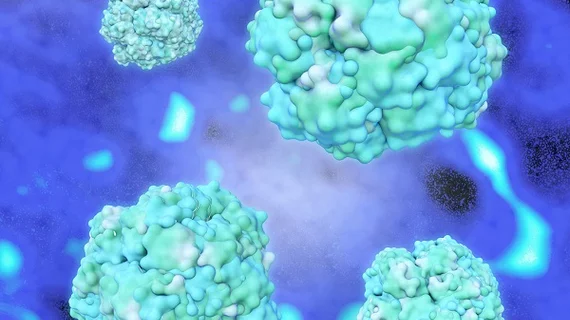Researchers optimize PSMA-targeted prostate cancer therapy to reduce negative side effects
A team of international researchers has improved a popular therapy for patients with prostate cancer while also limiting its negative side effects.
Prostate-specific membrane antigen (PSMA) is an enzyme overexpressed in the tumors of prostate cancer patients, and is a crucial target for diagnostic imaging-directed radionuclide therapy, also called "theranostics." There are longstanding questions, however, on what concentration of PET tracer allows for the optimum uptake of an imaging tracer, which limits a clinician’s ability to properly visualize and treat a tumor.
“In the case of PSMA radioligands, there have been a few published studies on how a variation in the peptide concentration or molar activity (MA) of the injected solution can affect uptake of the SPECT or PET radiotracer,” Fumihiko Soeda, with Osaka University Graduate School of Medicine’s Department of Nuclear Medicine and Tracer Kinetics in Osaka, Japan, wrote in the November issue of the Journal of Nuclear Medicine.
The team set out to evaluate changes in the whole-body distribution of the imaging agent fluorine-18 (18F)-PSMA-1007 when used with different peptide concentrations. To do this, Soeda et al. acquired tissue from a mouse model, injecting it with one of three levels of peptide concentration: high, medium and low.
Results showed that a decrease in peptide concentration or MA levels led to a drop in tracer uptake within the tumor. This was even more dramatic in the salivary glands which, when exposed to high levels of uptake, can lead to a condition that dramatically impacts a patient’s quality of life and often requires they stop receiving PSMA therapy, the team explained.
“This finding suggests the possibility of obtaining a therapeutic effect in tumor while minimizing adverse effects on salivary gland by setting an appropriate MA level in PSMA-targeted therapy,” Soeda and colleagues concluded.

